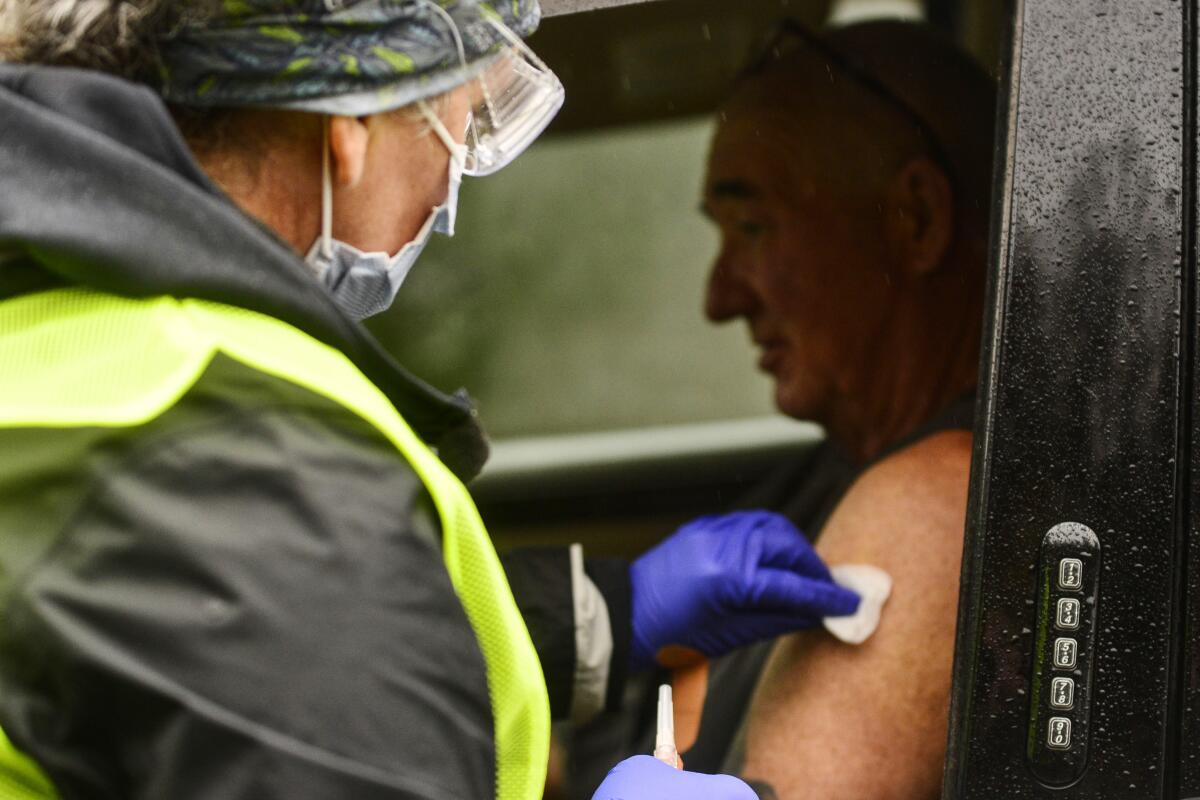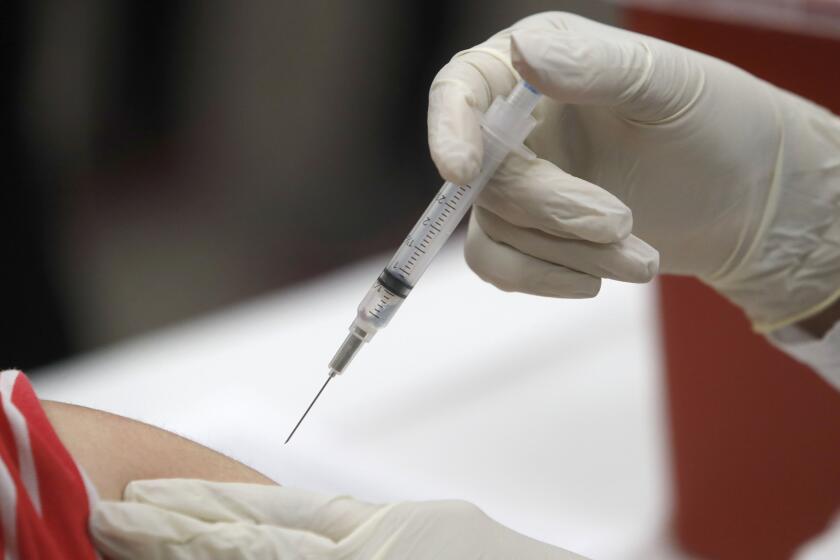Flu is making a comeback in the U.S. after an unusual year off

- Share via
The U.S. flu season has arrived on schedule after taking a year off, with flu hospitalizations rising and two child deaths reported.
Last year’s flu season was the lowest on record, probably because COVID-19 measures — school closures, distancing, masks and canceled travel — prevented the spread of influenza, or because the coronavirus somehow pushed aside other viruses.
“This is setting itself up to be more of a normal flu season,” said Lynnette Brammer, who tracks flu-like illnesses for the U.S. Centers for Disease Control and Prevention.
The childhood deaths, Brammer said, are “unfortunately what we would expect when flu activity picks up. It’s a sad reminder of how severe flu can be.”
During last year’s unusually light flu season, one child died. In contrast, 199 children died from flu two years ago, and 144 the year before that.
In the newest data, the most intense flu activity was in the nation’s capital, Washington, D.C., and the number of states with high flu activity rose from three to seven. In CDC figures released Monday, states with high flu activity are New Mexico, Kansas, Indiana, New Jersey, Tennessee, Georgia and North Dakota.
Health experts are worried Americans might have vaccination fatigue, but they still want you to get your flu shot.
The type of virus circulating this year tends to cause the largest amount of severe disease, especially in the elderly and the very young, Brammer said.
Last year’s break from the flu made it more challenging to plan for this year’s flu vaccine. So far, it looks like what’s circulating is in a slightly different subgroup from what the vaccine targets, but it’s “really too early to know” whether that will blunt the vaccine’s effectiveness, Brammer said.
“We’ll have to see what the impact of these little changes” will be, Brammer said. “Flu vaccine is your best way to protect yourself against flu.”
There are early signs that fewer people are getting flu shots compared with last year. With hospitals already stretched by COVID-19, it’s more important than ever to get a flu shot and take other precautions, Brammer said.
“Cover your cough. Wash your hands. Stay home if you’re sick,” Brammer said. “If you do get flu, there are antivirals you can talk to your doctor about that can prevent severe illness and help you stay out of the hospital.”
More to Read
Sign up for Essential California
The most important California stories and recommendations in your inbox every morning.
You may occasionally receive promotional content from the Los Angeles Times.











